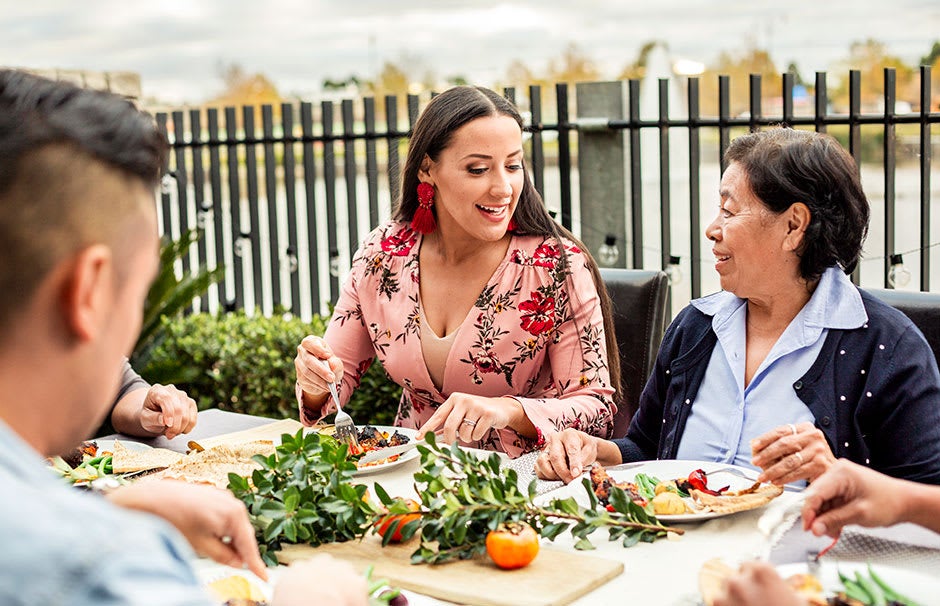How to say goodbye to guilt


How change your mindset towards guilt
According to Spanish researchers, women are more likely to have a genetic predisposition towards guilt and can experience these feelings more intensely than men. Brisbane-based psychologist Kellee Waters says one explanation is that research indicates that the parts of the brain involving emotion are larger in women compared to men. “Not only are these parts responsible for emotion, but also for stress, motivation, mood and habits,” she explains.
So, how do guilt-related thoughts impact health and wellbeing, and even weight loss? And more importantly, how can we minimise the impact by learning to think differently? Read on for some simple solutions.
The complex nature of guilt
According to Melbourne-based psychologist Dr Geraldine Lockley, guilt is an extremely complex emotion, fuelled by the success or failure of everything we do. “Emotions like pity, anger and guilt are aroused when something doesn’t work out the way we planned,” she explains. “Perhaps we’ve gained a few kilos or have stopped our regular exercise routine.”
She adds that control plays a big part in the negative emotions we feel, too. “Whether it’s anger, guilt or pity, these feelings seem to depend on our perception and thoughts about whether the misfortune was within our control or not,” says Dr Lockley. “We tend to feel guilt when we believe the outcome was within our own control, such as making poor eating choices.”
Pulling the trigger
So what can trigger guilt? The short answer is anything and everything. But when it comes to a weight-loss journey, Waters says that triggers can include not reaching your exercise goals, consuming too many kilojoules or failing to reach your ideal weight by a set time.
Guilt can even be triggered by having thoughts we don’t think we should have. “When it comes to weight management, I often hear people say things like, ‘I’m thinking about food all the time’, or ‘In the afternoon, all I want is some chocolate and I know it’s wrong but I can’t get this craving out of my head!’.
“These are completely natural thoughts, yet some people might see themselves as failures because they believe they shouldn’t be thinking this way,” says Waters.
How to avoid those negative feelings
So, what’s the best way to blitz that guilty conscience for good? Dr Lockley believes it’s important to be flexible with your choices. For example, instead of having an ‘all or nothing’ mindset when it comes to eating (which just sets you up for failure), factor in a small, regular treat, like a square of chocolate every now and then, or an occasional weekend takeaway. The result? You’ll be less likely to overindulge because you’re not depriving or denying yourself.
The same goes for exercise. Missed your gym session? Instead of dwelling on what you haven’t done, and using an ‘all or nothing’ thinking style, where you believe you have to be perfect or you’re a failure, do a reality check and make a plan. So, rather than saying, ‘I missed my workout – that’s today written off’ say ‘I missed my workout today, but I stuck to my Points Budget and my step count was pretty good. I’ll make sure I hit the gym before work tomorrow morning.’ That way, you’re being proactive, which can reduce feelings of guilt significantly.
When the emotion is good
Let’s be honest. It’s unrealistic to think you’ll never experience feelings of guilt, so when you can’t make it budge, why not put those thoughts to good use instead? Dr Lockley reveals that guilt can be a powerful motivator in moderate amounts, because it can be the little voice on your shoulder that reminds you of your goals.
“Feeling guilty about how we are going with our weight-loss journey provides us with the opportunity to stop and ask, ‘Which choices or actions have I made that are contributing to my feelings of guilt?’, or ‘Can I review these choices and make better ones tomorrow?’.” Try it and see what a difference it can make.
Real-life experience: “I broke the guilt cycle.”
For 40-year-old Cheryl Bunworth, a recurring guilt cycle slowed down her weight-loss journey for years. "I’d come home from a jog and feel great," she recalls. "But then I’d reward myself with food and, of course, feeling guilty about that meant I couldn’t even enjoy it. I’d then feel like I’d blown it, so would continue to eat junk.
"In the end, a friend taught me that guilt was taking away my power. He suggested I stop, explore the specifics of what I was feeling bad about, then decide whether to do it anyway and enjoy the experience, or decide that the guilt outweighed the pleasure and not do it. It made a huge difference."